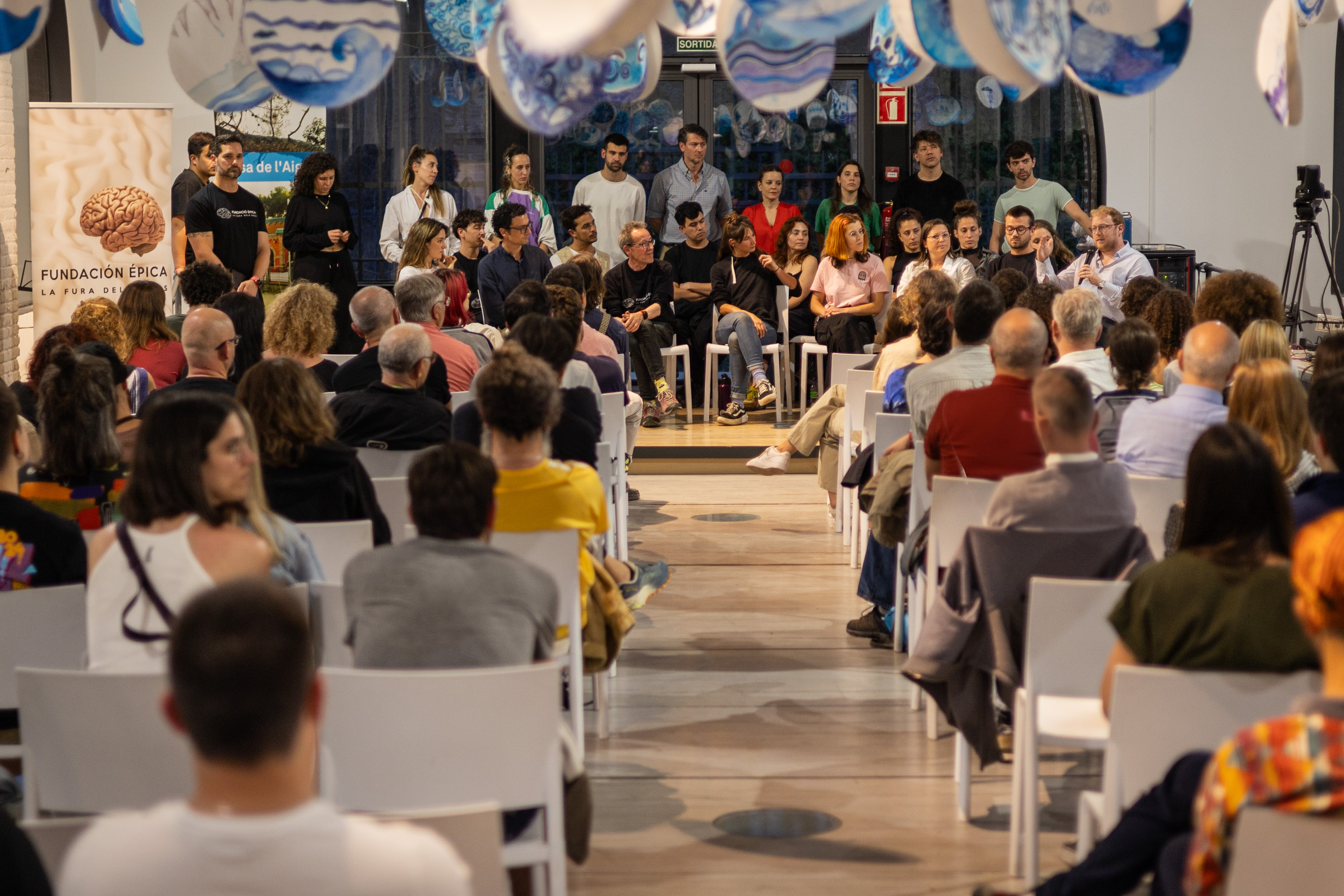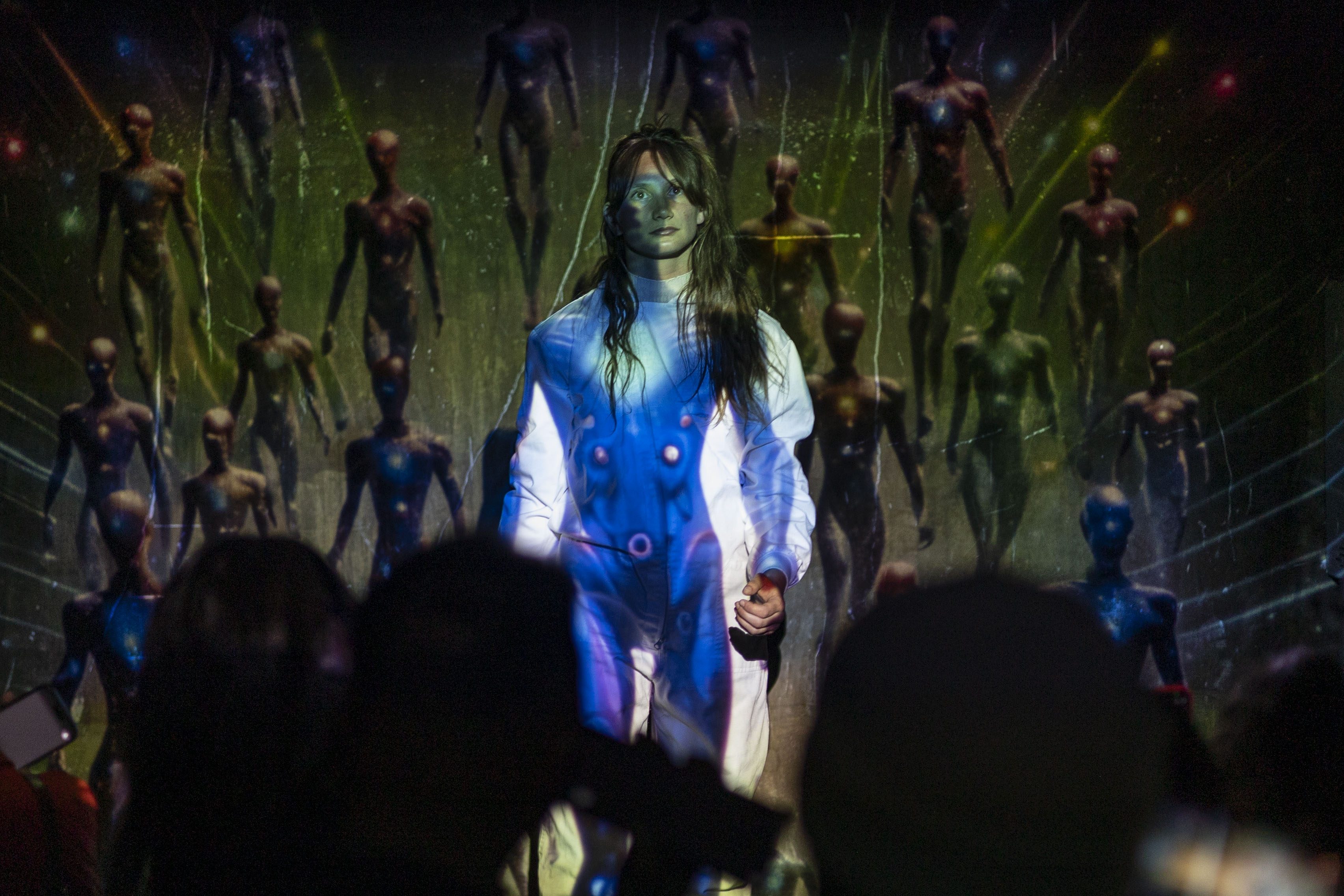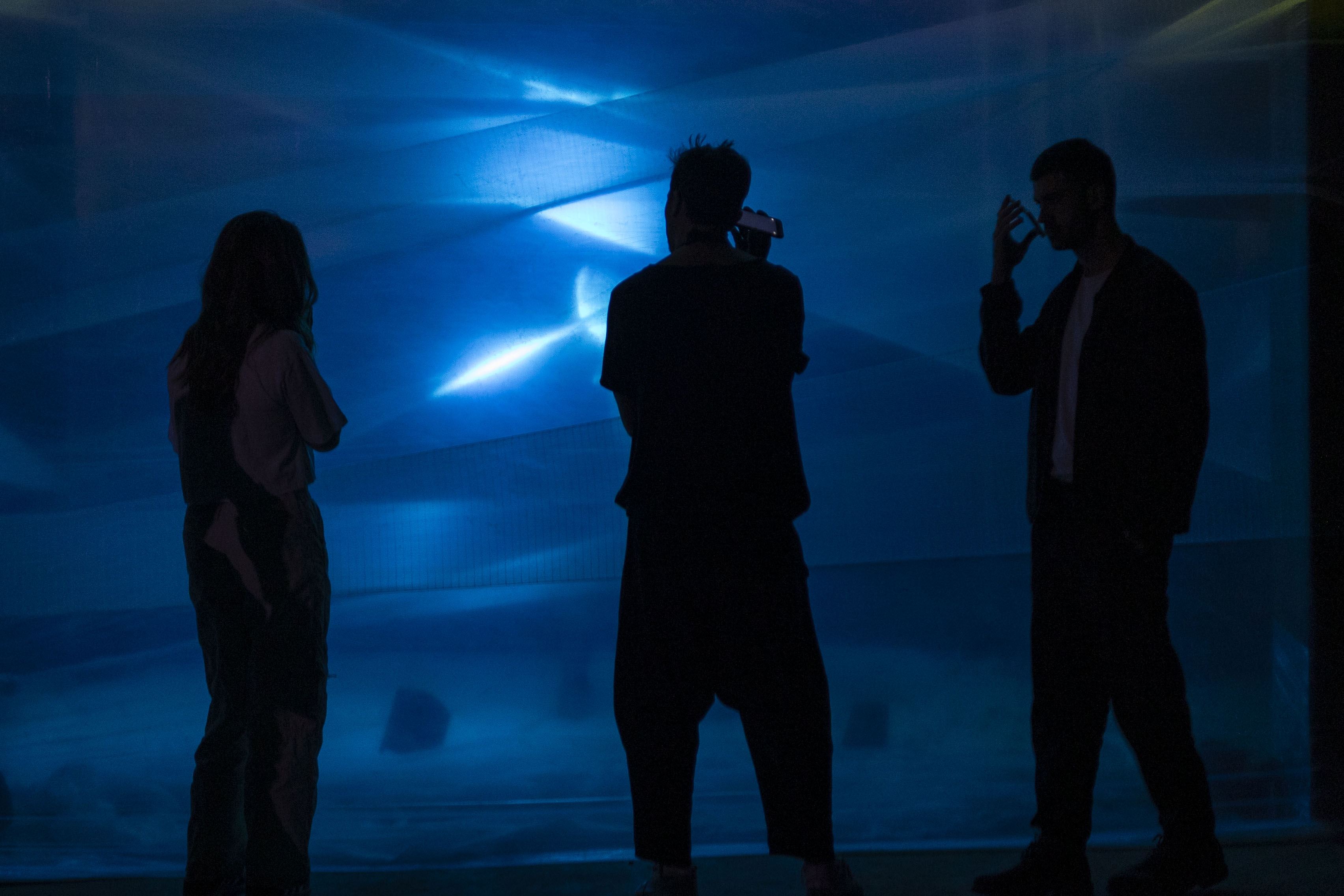The project "Workshop #20 - Neural Networks", a space for collaboration, experimentation, and research between science, art, technology, and society

The activity of Èpica Foundation La Fura dels Baus, co-financed by the Spanish Foundation for Science and Technology (FECYT), in collaboration with Germans Trias i Pujol Research Institute (IGTP), Institute of Biomedical Research of Barcelona (IIBB-CSIC), Polytechnic University of Catalonia, and Computer Vision Center (CVC-UAB), took place from 14 to 26 May at Casa de l'Aigua (Trinitat Nova) in Barcelona. The results were presented last weekend before more than 200 people.
Èpica Foundation La Fura dels Baus, in collaboration with Germans Trias i Pujol Research Institute (IGTP), Institute of Biomedical Research of Barcelona (IIBB-CSIC), Polytechnic University of Catalonia (UPC), and Computer Vision Center (CVC-UAB), has presented the results of the project "Neural Networks - Workshop #20". This innovative event, which combines scientific excellence and performing arts, transformed Casa de l'Aigua of Trinitat Nova into a space for collaboration, experimentation, and research between science, art, technology, and society.
Knowledge transfer sessions
The workshop, held from 6 to 27 May, included an initial phase where experts from the participating centres presented their fields of work and challenges. Researchers from the Psychiatry and Mental Health research group at IGTP, Dr Maria Iglesias-González, Dr Alba Toll, and Dr Jorge Cuevas-Esteban, with the collaboration of Dr Magi Farré, posed a challenge to the artists: to analyse emotional processing after the administration of cannabidiol (CBD) in healthy subjects, comparing it with a placebo. Preliminary results showed difficulties in identifying fear after the administration of CBD. Cuevas, head of the Adult Psychiatry Service at Germans Trias i Pujol University Hospital, explains that "these findings are crucial to better understand the interactions between substances and emotions".
One of the most innovative parts of the project was conducting an interview replicated with artificial intelligence simulating a person with schizophrenia arriving at emergency services without awareness of their condition. "The AI gave us answers that made it seem victorious and accepted any suggested intervention or programming," says Cuevas. This experimentation with AI is part of a broader collaboration with various AI research groups, attempting to generate errors that manifest differently from humans in mathematical or AI terms.
Conceptualisation, design, and public presentation
In the second phase of the workshop, participants developed an experience to be presented to the public over two weeks, accompanied by the Èpica Foundation team and its expert researchers. The performance, held on 25 and 26 May at La Casa de l'Aigua in Trinitat Nova, explored how psychiatrists observe the sick brain and how computer scientists solve problems in their artificial neural networks. After the presentation, experts and artists answered the audience's questions and explained the creative process.

Long-term collaboration
This collaboration between Èpica Foundation and IGTP has allowed complex concepts related to mental health to become more accessible and understandable to the general public, helping to educate the community and increase awareness of mental illnesses and reduce associated stigma. The integration of artists and experts from various disciplines has fostered interdisciplinarity, bringing new perspectives and stimulating scientific creativity.
"The collaboration with Èpica Foundation has allowed us not only to disseminate scientific knowledge but also to learn from different disciplines. This interaction fosters creativity and brings new perspectives to our projects", says Jorge Cuevas. He adds, "it is important to convey a message about mental health that allows for a deeper understanding of mental pathologies and reduces associated stigma".
Also in the field of neuroscience, Dr Victoria Puig and Dr Thomas Gener from the Institute of Biomedical Research of Barcelona at CSIC, participating for the third time in this type of initiative by Èpica Foundation, have continued collecting data for research on the neurobiological processes inherent to the creative process. Researchers study the dynamics of neural networks in animals and the effects of drugs for mental illnesses.
Furthermore, the project included the participation of two researchers in the field of Artificial Intelligence. Dr Xim Cerdà Company from the Neurobit research group at the Computer Vision Center of Universitat Autònoma de Barcelona (UAB) proposed, within the framework of this project, the technological challenge related to training generative AI models using the creations of the attendees so that these models have their own "creativity". Additionally, he introduced various AI tools to serve as tools and companions in creation.
Finally, pattern recognition researcher Raul Benitez Iglesias from the engineering school at Polytechnic University of Catalonia (UPC) proposed exploring pattern recognition learning by humans and machines, highlighting differences between humans and machines.
About Èpica Foundation
Èpica Foundation La Fura dels Baus has four lines of work: R&D&I; Dissemination, knowledge transfer, and internationalisation activities; Sociocultural and territorial activities; and residencies. Through these lines, more than 25 multidisciplinary projects have been carried out with the participation of more than 800 creatives and artists, and more than 100 scientists and experts, reaching an audience of 15,000 people at physical events and generating a digital impact of more than 100,000 views.
Since its inception, the Foundation has worked with various national and international research centres, positioning itself as an innovative laboratory where experiments proposed by research groups are conducted. These groups approach Èpica to tackle challenges, conduct proof of concept, or collect data for research. In this regard, Èpica has not only collaborated in research but has become a true case study for disciplines such as neuroscience, neuromuscular and neurodegenerative diseases, or philosophy.

- More information about the project
- Related previous news: (2021) Researchers explain science like never before in the first European Performing Science Night in Badalona
- (2022) The 'Survival vs. Resilience' project will turn Badalona into a laboratory of art and science to anticipate the future of society
